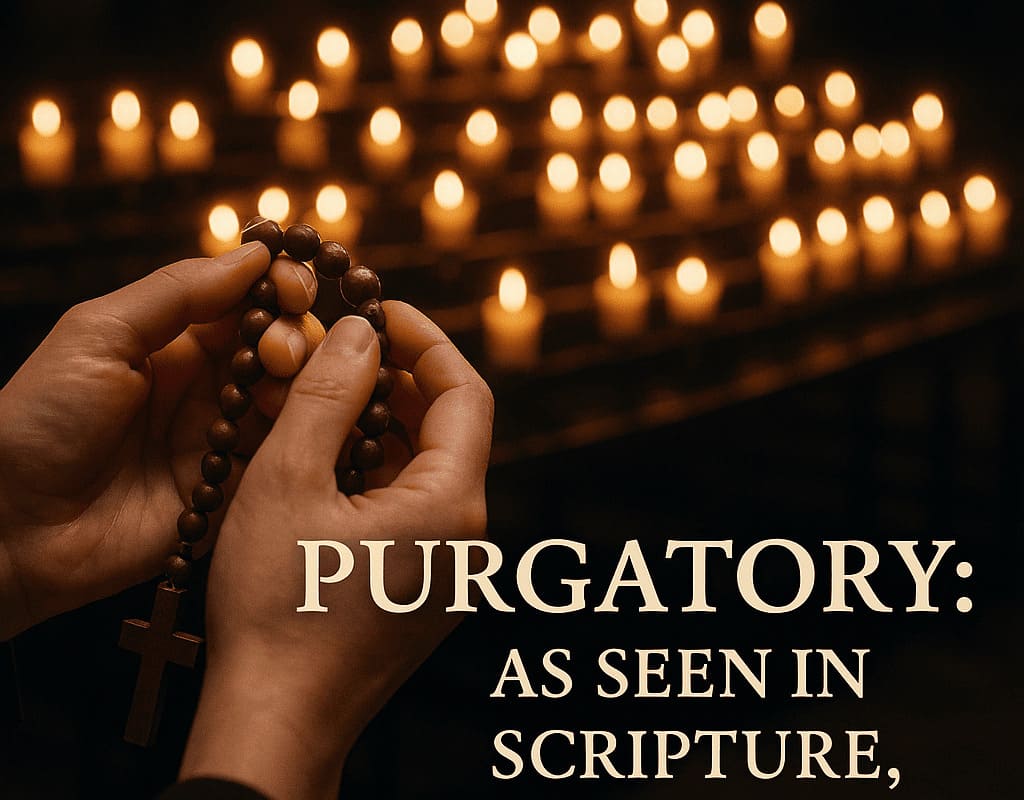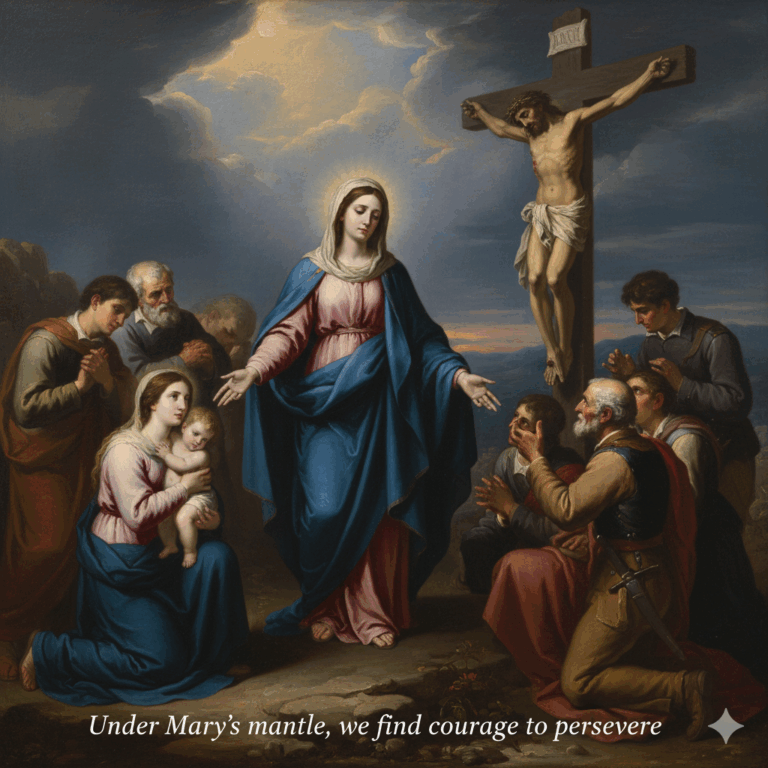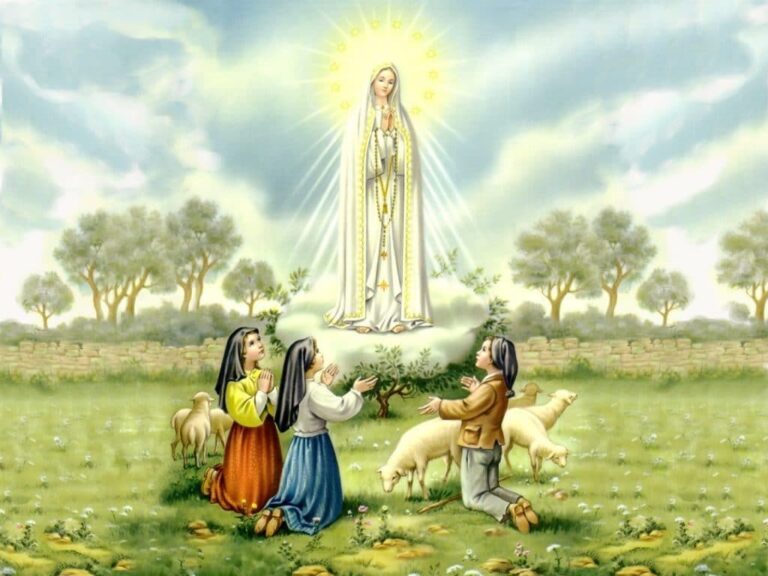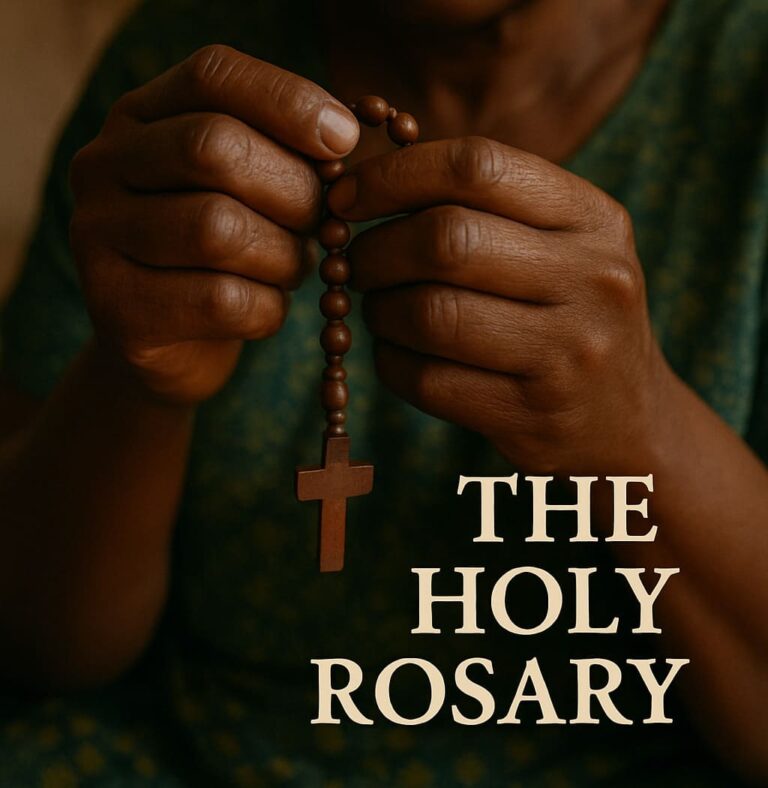Editor’s Introduction: The death of a loved one is met with ceremonies, prayers, and the heartfelt wish that they “Rest in Peace.” But for Catholic Christians, the spiritual duty to a loved one does not end when they are laid to rest. There is a profound belief that our prayers continue to help them on their journey home to God.
In this insightful essay, author Robinson Okereke delves into the ancient Catholic teaching on Purgatory. Drawing from Scripture, Church Tradition, and the wisdom of the Saints, he explains why praying for the dead is considered a vital and charitable act of faith, hope, and love.
“Have pity on me, my friends, have pity, for the hand of God has struck me.” — Job 19:21
The practice of praying for the dead is not a new invention; it can be traced back to ancient Jewish traditions, specifically mentioned in the Second Book of Maccabees (2 Maccabees 12:38-46). This is not merely a question of belief in an afterlife—a belief common even among non-believers. Rather, it is a religious practice that defines the communal nature of the Catholic faith.
The Standard of God’s Perfect Holiness
Throughout the Old Testament, God revealed His perfect holiness and warned His people about His abhorrence of even the slightest sin. In the book of Leviticus, He commanded Moses, “Speak to all the congregation of the people of Israel and say to them, ‘You shall be holy, for I the LORD your God am holy'” (Leviticus 19:2).
In a vision given to the prophet Isaiah, he beheld the Seraphim crying out to one another: “Holy, holy, holy is the Lord of hosts; the whole earth is full of his glory!” (Isaiah 6:3). These passages show that God’s holiness is a foundational aspect of His character, calling for both our awe and emulation. This means that, as Revelation 21:27 states, ‘nothing unclean shall enter’ His presence.
It is with this thrice-holy God that every soul is destined for union.
The Human Dilemma and God’s Merciful Solution
We are born with Original Sin, a state inherited from our first parents, along with concupiscence—an inclination to sin. The grace of baptism cleanses us of Original Sin, but this inclination remains. It takes a monumental effort to live in this world without contracting imperfections and venial sins. As Holy Scripture says, “a just man falls seven times a day” (Proverbs 24:16).
Knowing this human frailty, it is out of God’s infinite mercy and kindness that He instituted a state of being called Purgatory. This is a place for the final expiation of sins that were forgiven in life but whose consequences were not completely remitted while on earth.
The Catechism of the Catholic Church defines Purgatory as a “purification, so as to achieve the holiness necessary to enter the joy of heaven.” This purification is experienced by those “who die in God’s grace and friendship, but still imperfectly purified” (CCC 1030).
A Charitable Duty to the “Holy Souls”
The saints unanimously declare that the purifying pains of Purgatory are beyond any suffering we might experience in this life. St. John Vianney says, “The fire of Purgatory is the same as the fire of Hell; the difference between them is that the fire of Purgatory is not everlasting.”
Among the souls languishing there are those who were once our parents, grandparents, friends, and relatives. We can almost hear them crying out to us in the words of holy Job, “Have pity on me, my friends, have pity.”
Sadly, the Church’s teaching on Purgatory is often ignored by many Catholics today, partly influenced by theological perspectives from the Protestant Reformation, which rejected the doctrine. As soon as a person dies, we frequently hear them canonized with words like, “He was a good man, he is resting in the Lord.” No sooner has the body been laid in the grave than the memory of their soul’s journey vanishes. This reflects a great lack of Christian charity.
The Church, from its earliest days, has honoured the memory of the deceased and offered prayers for them, particularly the Eucharistic sacrifice, to aid in their purification and help them attain the beatific vision of God (CCC 1032).
The Eternal Gratitude of the Saints
God considers Himself indebted to anyone who, through prayers and sacrifices, helps the suffering souls in Purgatory. For He Himself said, “Whatever you do to the least of my brothers, that you do unto me” (Matthew 25:40). Can anything be more encouraging?
These souls, on their part, are eternally grateful. St. Alphonsus Maria de Liguori taught that when these souls arrive in Heaven, “they will be sure to remember all who have prayed for them.”
Venerable Archbishop Fulton Sheen gives us a beautiful image of this moment:
“As we enter heaven, we will see them, so many of them coming towards us and thanking us. We will ask who they are, and they will say ‘a poor soul you prayed for in purgatory.'”
By offering our prayers for those undergoing purification, we participate in God’s merciful plan and fulfill Christ’s command to love one another. We not only hasten the day when they will stand spotless before God, but we also deepen our own journey toward the joy and glory of everlasting life.
The Three States of the Church
Catholic teaching speaks of the “Communion of Saints,” which connects all believers, living and dead, in one body. This body exists in three states:
- The Church Militant: The faithful here on Earth, struggling against sin and for holiness.
- The Church Penitent (or Suffering): The souls in Purgatory, being purified before entering Heaven.
- The Church Triumphant: The saints in Heaven, who have achieved the beatific vision.
Praying for the dead is an expression of the bond between the Church Militant and the Church Penitent.
Join the Discussion in the Agora
The author has presented the Catholic understanding of our connection to those who have passed away. Now we open the floor for reflection.
How does your own faith or cultural background view the relationship between the living and the dead?
The author calls praying for the dead an act of “Christian charity.” What does this concept mean to you?
How can this teaching influence the way we approach loss and remembrance in our communities?
Share your thoughts in the comment below







